Gaza conflict: Truce holding after Israel withdraws
- Published
People have been returning to see what is left of their homes, as Jon Donnison reports
A 72-hour humanitarian truce is holding in Gaza, halting a four-week conflict that has claimed more than 1,900 lives.
Israel and Gaza militants maintained fire up until the truce started at 08:00 local time (05:00 GMT).
Israel says it has withdrawn all forces to positions outside Gaza, and some residents there are now returning to discover the fate of their homes.
The truce has drawn an international welcome, and the focus for a longer deal will now fall on talks in Cairo.
'Durable solution'
Israeli Prime Minister Benjamin Netanyahu issued a statement commending the armed forces.
"This was a complex operation that made heroes of soldiers under difficult combat conditions," he said.
Martin Patience in Gaza and Bethany Bell in Jerusalem say there have been no reports of rockets since the ceasefire began
"There is no 100% guarantee for success but we did all we could to achieve our goal."
The EU and US have welcomed the ceasefire.
The EU called on all parties to respect the truce, and paid tribute to Egypt, which helped broker the deal.
It said: "We hope that this can be extended into a lasting ceasefire. We call on the parties not to miss this opportunity."
Israel-Gaza conflict
8 July
Israeli offensive began
-
4,760+ air strikes on Gaza
3,488 rockets fired at Israel
-
1,973 people killed in Gaza
UN estimates +70% of deaths are civilians
-
3 civilians killed in Israel
64 Israeli soldiers killed
Analysis: Survivors but no winners
US state department spokeswoman Jen Psaki said the US would continue to help the sides achieve a "durable, sustainable solution for the long term".
Hamas, which controls Gaza, has been counting the cost to the territory of the Israeli offensive.
Deputy Economy Minister Taysir Amro said that it could be up to $6bn (£3.55bn).
The BBC's Martin Patience in Gaza City says it is now quiet there, with Palestinian fishermen heading out to sea, as other residents stock up on supplies and try to make sense of four weeks of destruction.
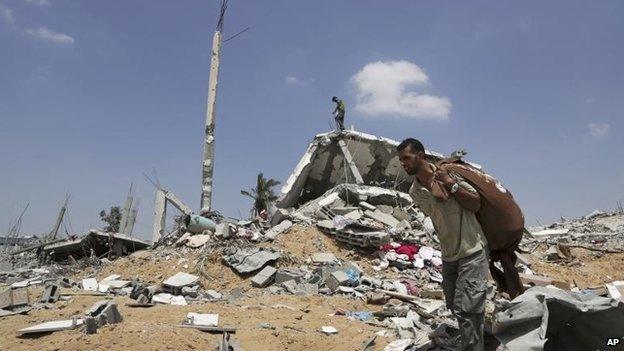
Many Palestinians have been returning to damage or destroyed homes
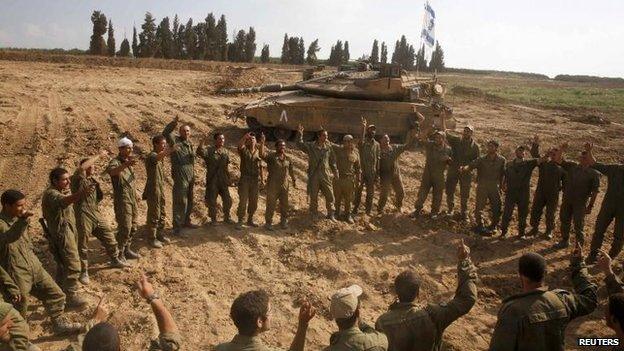
Israeli soldiers celebrate after returning from Gaza
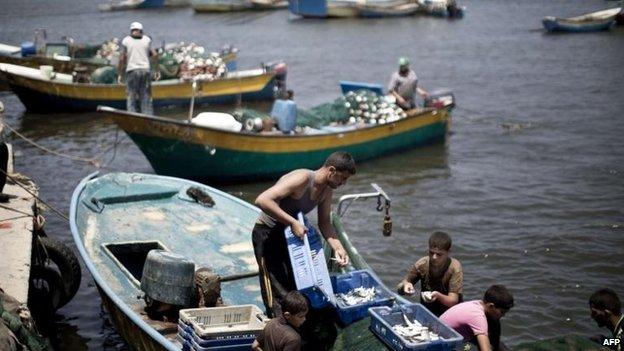
Fishermen in Gaza returned to the sea as the truce took hold
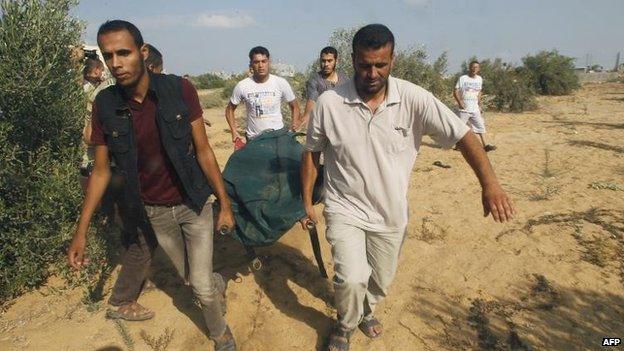
Palestinians remove a body found under rubble in Rafah, southern Gaza
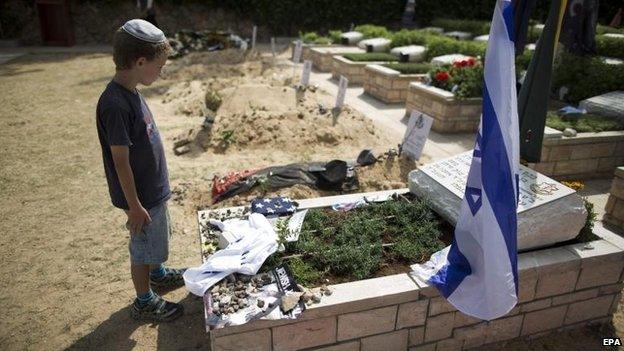
A young Israeli attends the grave of a soldier killed in the Gaza fighting
Some have been returning to homes they were forced to evacuate during the offensive.
In the northern town of Beit Lahiya, Zuhair Hjaila, told Reuters he had lost his home and his supermarket.
"This is complete destruction. I never thought I would come back to find an earthquake zone."
In the southern town of Rafah, resident Tawfiq Barbakh told Associated Press: "I never saw anything like this in my life. I don't know how many shells landed every minute but it felt like 20 or 30."
Maram and David share their Gaza audio diaries with Radio 5 live (Recorded between 28 July and 3 August)
On the Israeli side of the border, Israela Yoed, who has lived on the Kfar Aza kibbutz for 50 years, told Agence France-Presse she did not trust Hamas but was confident the truce would hold.
"I believe that we can make things better through negotiations. I won't leave; I'm not afraid," she said.
Another kibbutz resident, Orly Doron, was more sceptical: "We had three or four ceasefires during this war; we all saw they weren't kept."
The BBC's Bethany Bell in Jerusalem says that while the troops have withdrawn, it is likely the army will go on searching for militant tunnels along the border - always a cause of great concern in Israel.
'Sustained quiet'
The latest ceasefire was brokered by Egypt in talks between Palestinian delegates in Cairo on Monday.
Israel did not take part but has now sent a team for indirect negotiations.

Israel-Gaza attacks
-
28 days of airstrikes
19 days of Israeli ground operations
-
Israeli military claims
32 border tunnels collapsed
3,000 missiles destroyed
UN estimates up to
485,000
people displaced in Gaza
Palestinian legislator Hanan Ashrawi told the BBC a long-term truce would be hard to achieve.
"What Israel has done now is make peace all that much more difficult, because it has produced a sense of animosity, of anger, of distrust, of revenge," she said.
Israeli government spokesman Mark Regev told the BBC that Israel had accepted a similar ceasefire deal three weeks ago and it was rejected by Hamas.
He said Israel's main focus for a longer-term deal would be on demilitarising Gaza to achieve a "sustained period of quiet".
The main Palestinian demands include the end of Israel's blockade of the territory and the opening of border crossings. They will also want internationally funded reconstruction.
Israel launched Operation Protective Edge on 8 July with the stated aim of ending rocket attacks and destroying tunnels used by Palestinian militants.
The latest figures from Gaza's health ministry list 1,867 deaths. Some 63 Israeli soldiers and four civilians in Israel have died.
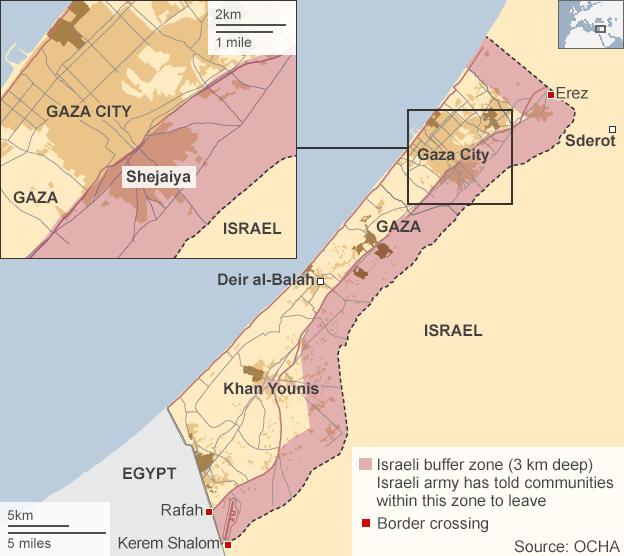
Are you in Gaza or Israel? Have you been affected by the violence? You can send us your views and experiences by emailing haveyoursay@bbc.co.uk, external using the subject line "Gaza Israel". If you are willing to feature in an interview, please ensure you include your contact details and a photograph of yourself to help us illustrate the story.